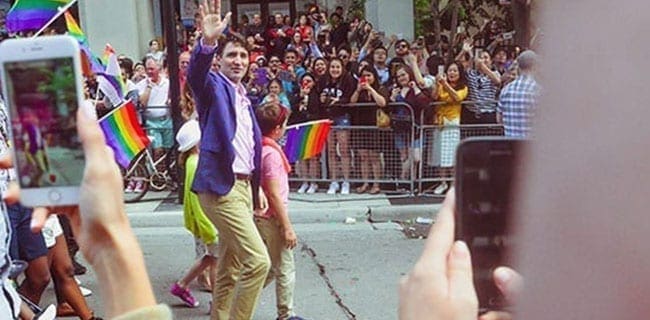 As a result of the #MeToo movement, past sexual transgressions are haunting high-profile men. How many is anyone’s guess but the list is probably long. Prime Minister Justin Trudeau is the latest casualty.
As a result of the #MeToo movement, past sexual transgressions are haunting high-profile men. How many is anyone’s guess but the list is probably long. Prime Minister Justin Trudeau is the latest casualty.
I’m quite sure Trudeau will survive the allegation, but perhaps it’s worthwhile to ask why some politicians who are confronted with allegations of past sexual misconduct survive, while some don’t.
I’ll argue it has nothing to do with fairness and everything to do with politics.
Remember Patrick Brown? Although his name is already receding from public memory, recall that the former leader of the Ontario Conservative Party was forced to resign as a result of allegations of past sexual improprieties that were aired on CTV News.
He’s suing the network, claiming that he did nothing wrong. We don’t know how this will turn out, but it’s quite astounding that this is a man who would have been the premier of Ontario, but is now in a political hinterland, unlikely to return to a position of power.
What’s the essential difference between his situation and that of the prime minister?
There’s no essential difference. In both cases, there are allegations of non-criminal sexual advances gone wrong – awkward sexual advances that were definitely not appreciated by the women involved. Those women felt strongly that the men had treated them improperly.
Time for #MeToo to shift to the #IRegret movement by Lee Tunstall
In both cases, the men deny that they did anything wrong.
Neither man is accused of the kind of behaviour that resulted in criminal charges against high-profile men like Harvey Weinstein and Bill Cosby. Those are cases of criminal sexual assaults, with sanctions ordered in the latter case and likely in the former.
In the case of Brown and Trudeau, no criminal proceedings are likely. In Brown’s case, the women making the allegations felt so strongly that Brown had acted improperly that they went on national news to make their point. In the case of the prime minister, the woman aggrieved felt so strongly that she wrote an editorial in the British Columbia town where the incident occurred, naming the then-youthful Trudeau and denouncing his conduct. There are many other similarities in the two cases but this will suffice.
What’s the essential difference in the two situations? Why did one man fall, while the other won’t?
One man has the necessary level of political support within his party and the other didn’t. The prime minister’s party will support him. Brown’s party did not.
If I’m correct that politics will determine whether a man faced with allegations of past sexual improprieties will survive or fall, that begs the question: Where’s the fairness?
The #MeToo movement arose in large part because of complaints that the criminal justice system denied women justice by treating them as criminals, rather than as people making legitimate complaints. There’s certainly merit in what they say.
And the movement has certainly empowered legitimate victims of abuse to find a voice and denounce the improper conduct of powerful men.
But #MeToo supporters also make the claim that the movement has introduced a level of fairness, where before there was none.
But if any admittedly flawed criminal justice system is simply to be replaced by an equally unfair system – a system where one’s fate depends completely on the vagaries of your stand politically when the complaint is made – how is that progress?
Brian Giesbrecht is a retired judge and senior fellow with Frontier Centre for Public Policy.
The views, opinions and positions expressed by columnists and contributors are the author’s alone. They do not inherently or expressly reflect the views, opinions and/or positions of our publication.

